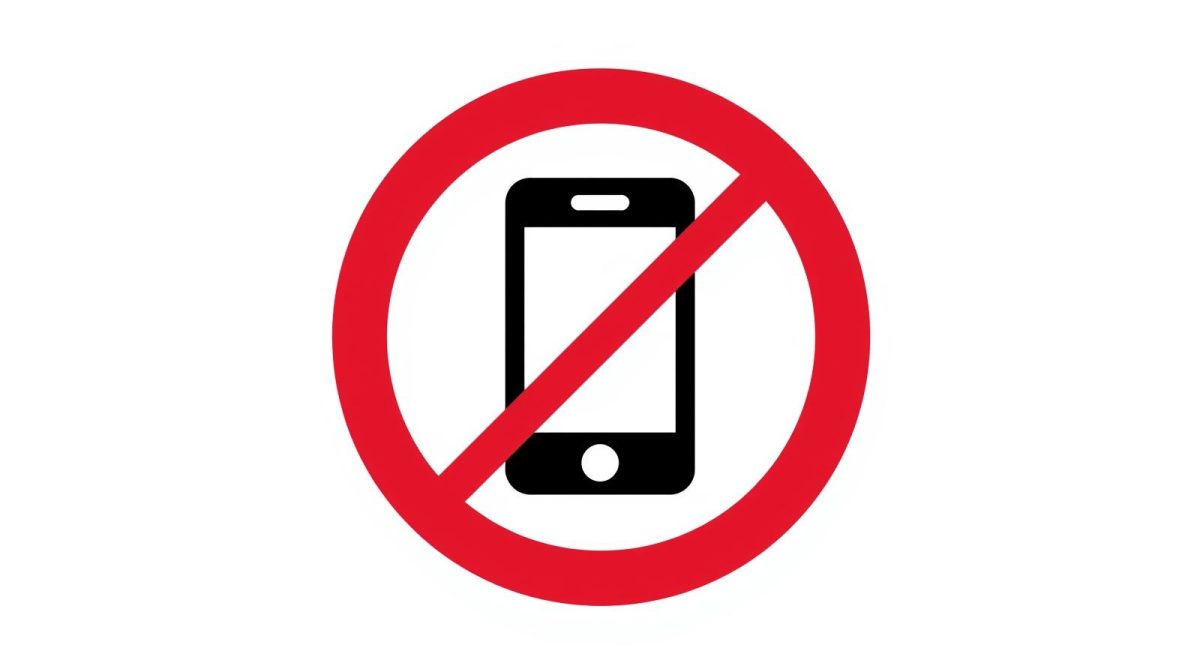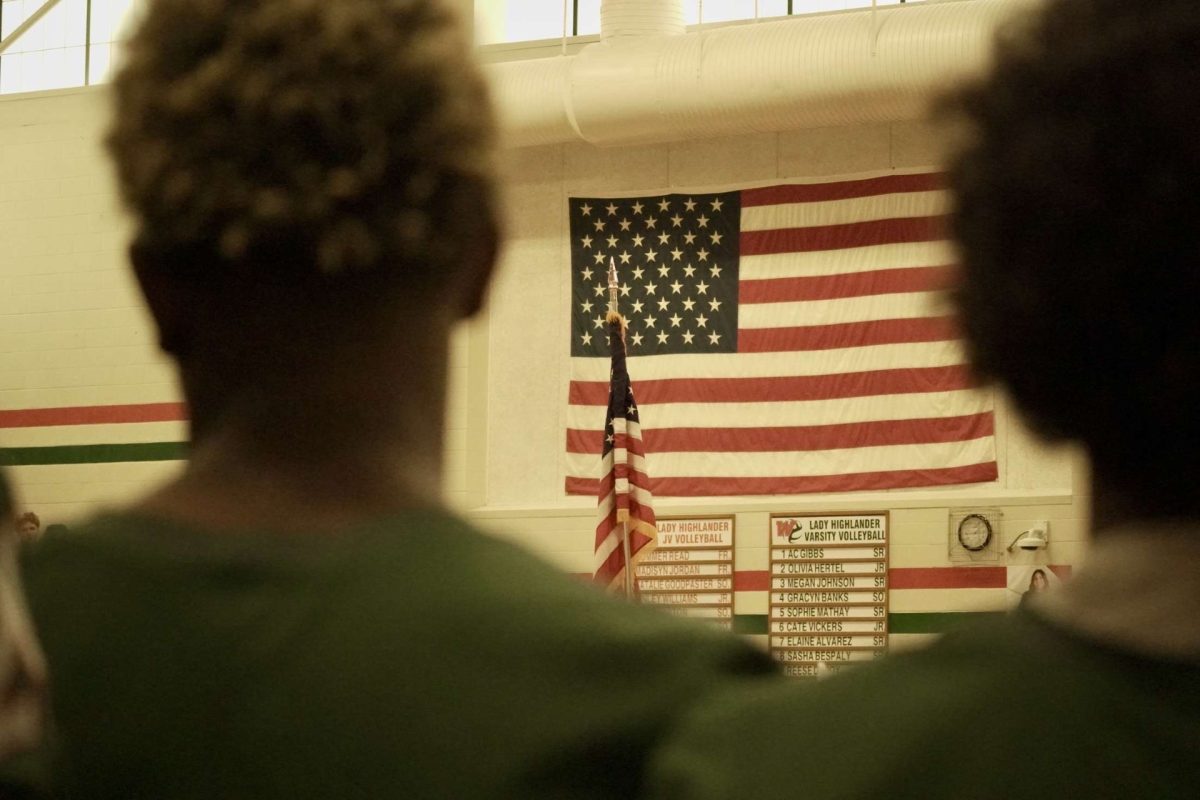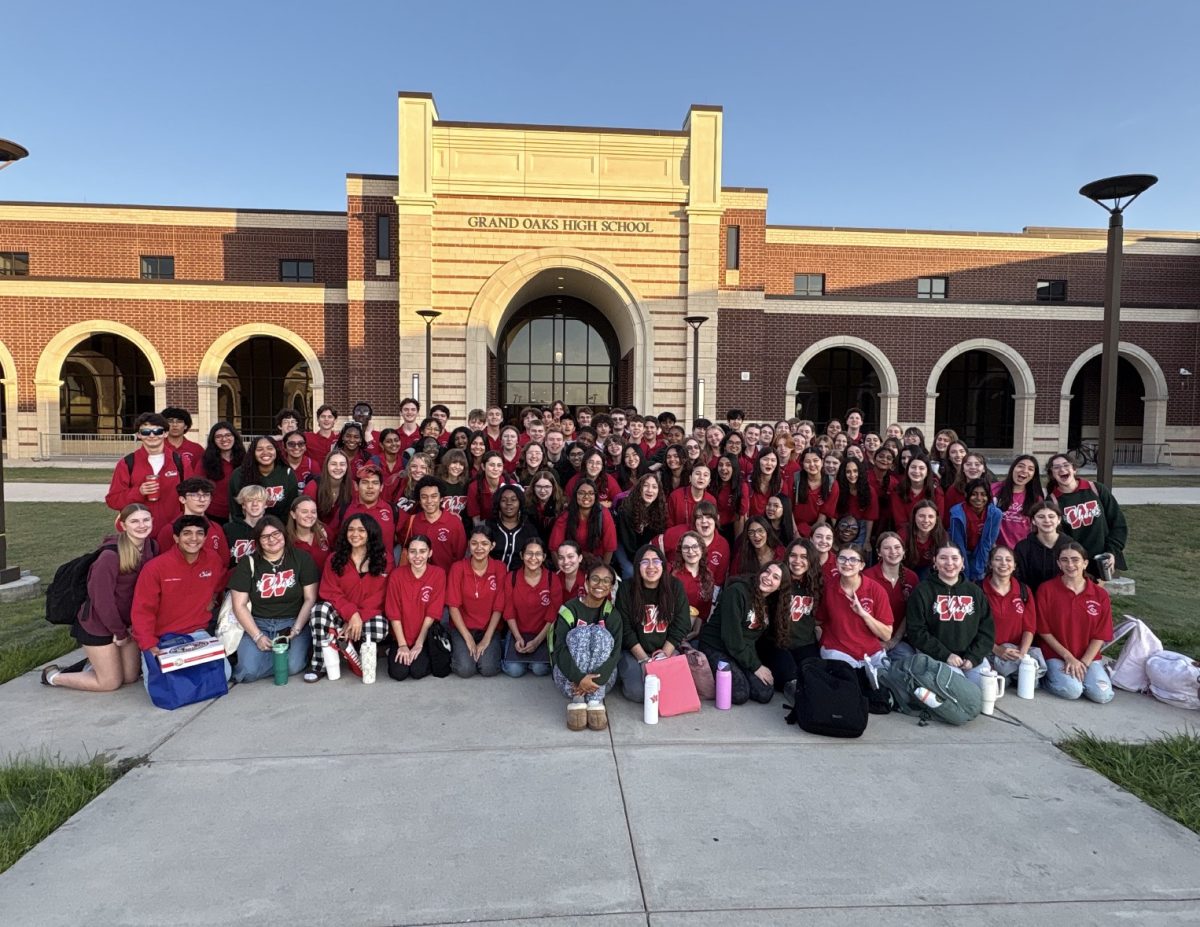As the 2025-2026 school year kicks off, The Woodlands High School students will enter campus-but will need to keep phones out of sight and out of mind for 8 hours.
House Bill 1481, signed over summer 2025, bans any personal electronic devices used for communication– including cell phones, headphones, smartwatches, personal lap tops, and tablets– across all Texas public schools during the entire school day.
With the law set to take effect by September 18, 2025, what are the real-world implications for students and staff at TWHS? We spoke to educators and students to find out.
What The Law Means for Students at TWHS
House Bill 1481 mandates that all personal electronic devices must be put away in backpacks throughout the school day. This includes smartphones, smartwatches, headphones, and tablets.
Key Points for TWHS Students:
- TWHS Policy: TWHS extends the ban to all personal devices, which must be put away in backpacks the entire school day.
- Disciplinary Actions: Violations may result in confiscation, referrals, and eventually detention or ISS
- Exemptions: Students with IEPS, 504 plans, or documented medical needs will be exempted under the law after consulting with the school or (necessary) teachers.
- Shift in Communication: Parents will no longer be able to reach students directly through cell phones. Instead, communication will need to happen through office phones or district messaging systems.
The law was passed and signed June 20, 2025 and all public Texas school systems must comply by September 18, 2025. The district may also apply for state grants to support secure storage solutions, as the Texas Education Agency has been issued $20 million for that purpose. Conroe ISD has announced a “strict no-phone policy” in compliance with state law, with exceptions only for students with documented medical or safety reasons.
Why The Ban Was Enacted
Texas lawmakers argue that the widespread use of phones during school hours has led to distractions in the classroom, worsened mental health, and contributed to cyberbullying on and off campus.
House Bill 1481 has been viewed as a step toward refocusing student attention on academics and improving overall classroom dynamics. But what do educators and students really think about these changes?
Student and Teacher Voices
To understand the real-world impact of House Bill 1481 at TWHS, we spoke to a variety of educators and students. Here’s what they had to say about the policy.
What are the perceived benefits of the new phone ban from the perspective of educators?
Kendra Meyers, Social Media Teacher:
“As an educator, I’ve noticed that the new phone ban has helped students become more present in the classroom. They’re more aware of what’s happening around them and are learning how to engage in real conversations. It’s also giving them opportunities to overcome some of the social awkwardness that often comes with relying too heavily on technology.”
Kayla Saint-Romaine, College and Career Counselor:
“Yes, student engagement has been more immersed. They seem to be more aware in classes and less distracted.”
Stella Rhame, Student:
“I have more strength in connecting with my peers and focusing in class is easier without the thought of technology constantly. I also feel like it’s forced us to have more academic priority in and outside of school.”
Have any issues or difficulties been encountered since enforcing the law regarding communication with students?
Kendra Meyers:
“Of course, there’s been a little pushback from some students at first, but overall, the transition has gone smoothly. Once they adjust to the expectation, the classroom environment really benefits.”
Kayla St. Romaine:
“I’ve noticed students aren’t able to be helped as quickly with issues regarding communicating about the college information. I’m sure once they adjust to the new policy, things will be going smoothly and moving quicker.”
Grace Boren, Student:
“If anything, communication is the one main issue. It’s caused us to struggle to create schedules and talk to parents.”
Are there any aspects of the new policy believed to be particularly effective or could use further refinement?
Kendra Meyers:
“The policy is effective in many ways, but there are some challenges for courses like mine. I teach Social Media Marketing, and several of the Texas Standards we cover focus on mobile marketing and social media usage. Without access to phones, it’s difficult to meet those standards as they were intended. Some refinement of the policy to allow for instructional use in certain classes would be beneficial.”
Do you think this ban will impact students’ long term relationships with technology and their ability to regulate phone usage outside and/or after high school?
Kendra Meyers:
“I believe this ban will help students recognize that there’s a time and place for cell phones and electronics. That’s a skill they’ll carry with them beyond high school. Learning how to regulate and balance their usage in both professional and personal settings” she continued, “students are less reliant on technology for communication and are working on better participation in class.”
Have you observed any change in student focus or engagement since the implementation?
Kendra Meyers:
“Since the policy went into effect, I’ve already noticed a shift. Students are interacting more with each other, and their engagement in classroom activities has improved. The overall atmosphere feels more connected and focused.”
Kayla St. Romaine:
“Yes, students are more active in my classroom. I feel like the lack of distractions is what is forcing students to be more engaged and communicate more efficiently.”
Conclusion:
House Bill 1481 represents a significant shift in how technology is used in Texas public schools, and the changes in TWHS are already visible. While there are growing pains as both students and staff adjust, many educators are optimistic about the benefits. As this policy rolls out across the state, it will be interesting to see whether the benefits of a phone-free school day extend beyond the classroom and help students build better relationships with technology long-term.









